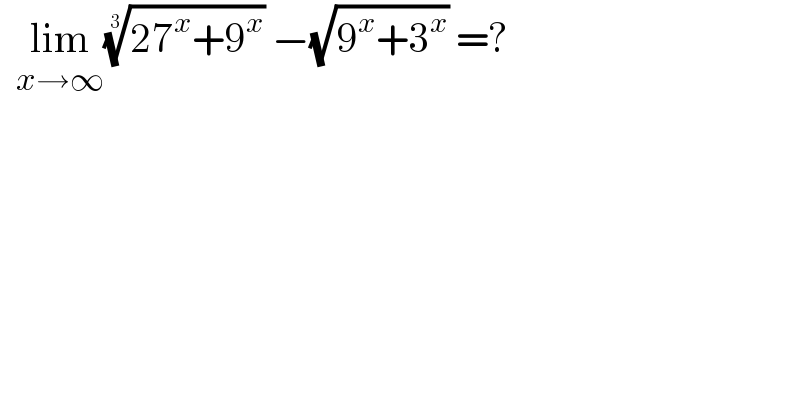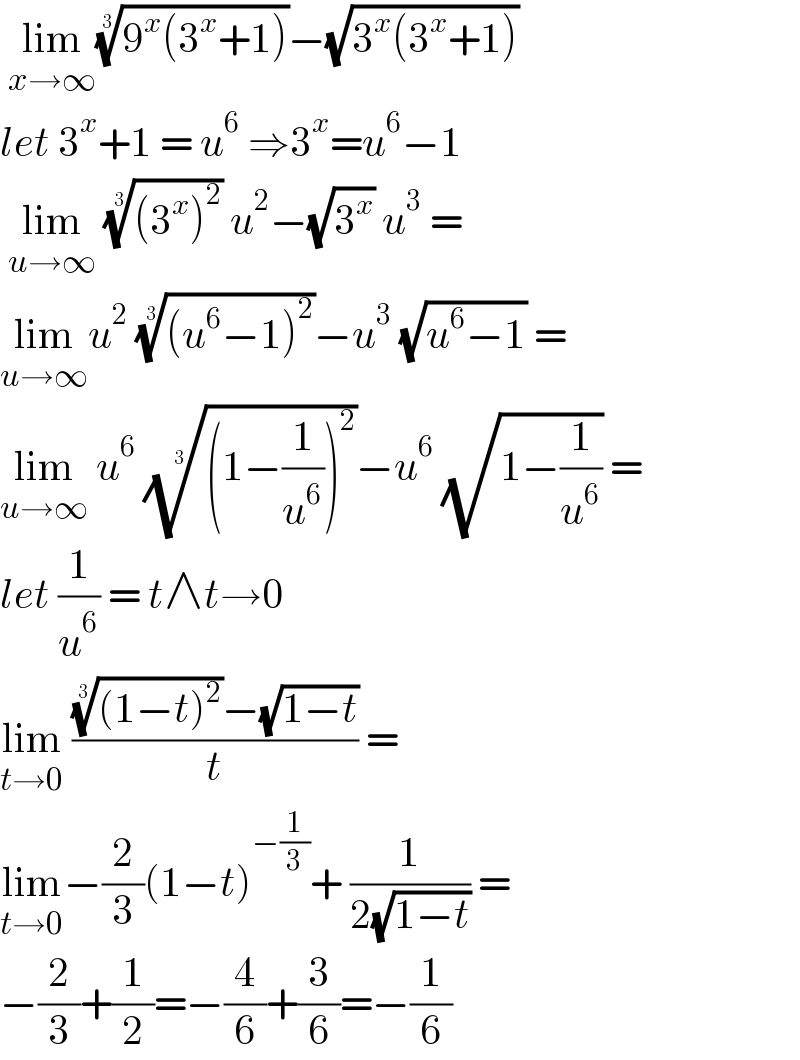
Question and Answers Forum
Question Number 153352 by liberty last updated on 06/Sep/21

Answered by MJS_new last updated on 06/Sep/21
![lim_(x→+∞) (27^x +9^x )^(1/3) −(9^x +3^x )^(1/2) = [x=−((ln t)/(ln 3)) → t→0^+ ] =lim_(t→0^+ ) (((t+1)^(1/3) −(t+1)^(1/2) )/t) = [L′Ho^� pital] =lim_(t→0^+ ) ((2−3(t+1)^(1/6) )/(6(t+1)^(2/3) )) =−(1/6)](Q153361.png)
Commented by liberty last updated on 06/Sep/21

Commented by MJS_new last updated on 06/Sep/21
��
Commented by liberty last updated on 06/Sep/21

Commented by MJS_new last updated on 07/Sep/21

Commented by liberty last updated on 07/Sep/21

Answered by liberty last updated on 06/Sep/21

Answered by Aras last updated on 06/Sep/21

Answered by bramlexs22 last updated on 07/Sep/21

